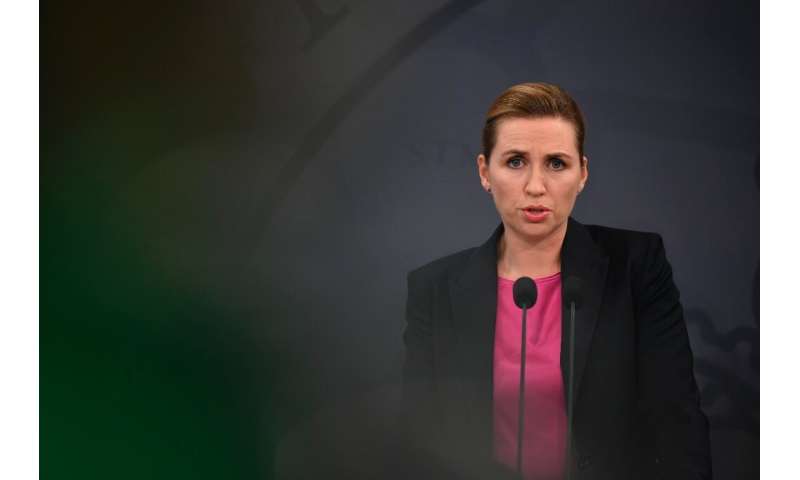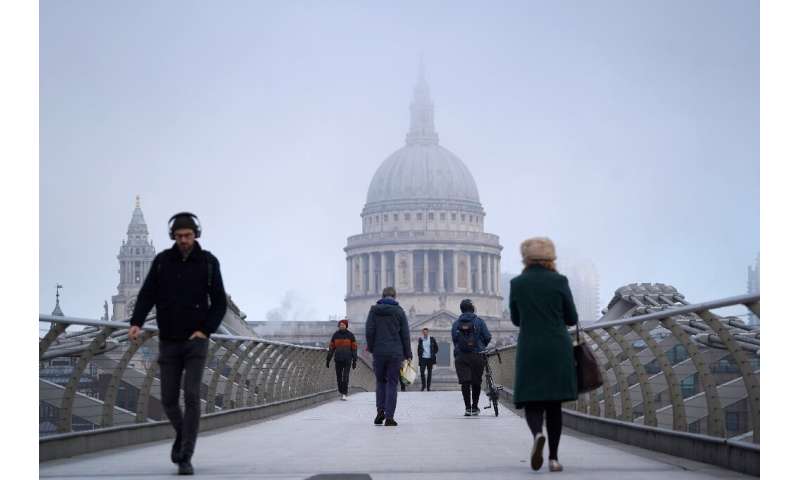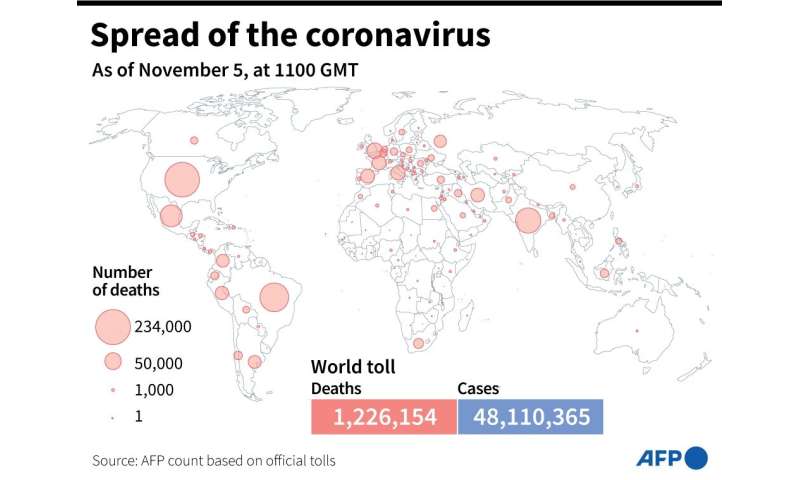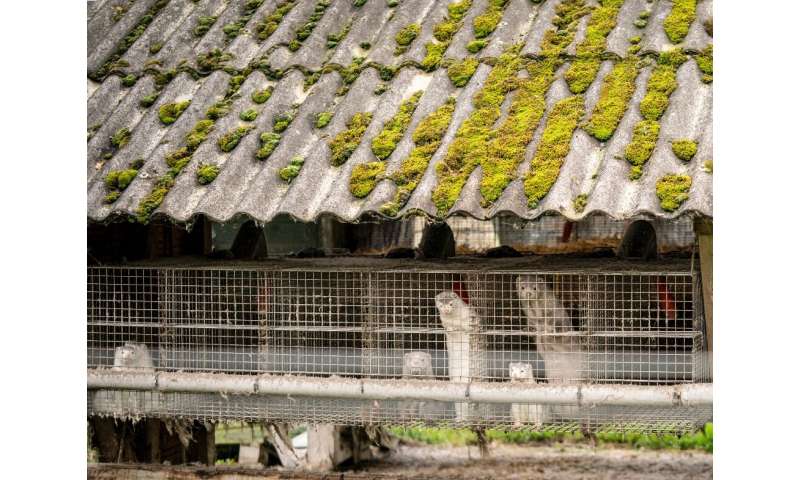
Denmark on Thursday raced to shut down a region where a mutated version of the coronavirus detected in minks spread to humans, as the World Health Organization warned of an “explosion” in COVID-19 infections in Europe and England entered its second lockdown.
Europe has again become the worst-hit global region, and Romania became the latest government to announce tough new restrictions to counter the second COVID-19 wave washing over the continent.
But as much of the world has been forced to become accustomed to the concept of lockdowns as it waits and hopes for a vaccine to break the cycle, the coronavirus has thrown up a new challenge in Denmark.
While not more severe than the normal virus, the mutated version detected in mink farms in Denmark “could pose a risk that future vaccines won’t work,” Prime Minister Mette Frederiksen said.
In a bid to stop this new strain from spreading, Frederiksen announced a “real closure” of the north Jutland region, where the mutation was detected in 11 people.
More than 280,000 people in seven areas of north Jutland were told to stay home, while bars and restaurants were due to close, public transport shut down and people ordered not to travel there.
“We are asking you in north Jutland to do something completely extraordinary,” Frederiksen said. “The eyes of the world are on us.”

Health authorities in north Jutland believe around five percent of coronavirus patients could be carrying the mutated strain, although no recent case has been reported.
Denmark—the world’s largest exporter of mink fur—had earlier said it would cull all of its 15-17 million minks.
Europe explosion
WHO’s regional director for Europe Hans Kluge said there had been a COVID-19 “explosion” on the continent as its 11.6 infections surge past Latin America and the Caribbean’s 11.4 million.
“We do see an explosion… in the sense it only takes a couple of days to have over the European region an increase of one million cases,” he told AFP.
But he said closing schools should be seen as a last resort “because we cannot afford a COVID-19 lost generation”.
The United Nations meanwhile voted to hold a special session focused on international coordination in response to the pandemic from December 3-4 in New York.

‘Completely dead now’
City centres reverted to ghost towns as England’s 56 million people entered a four-week lockdown, with all non-essential shops and services closing but schools staying open.
Tourist destinations such as London’s Buckingham Palace and Trafalgar Square were deserted, and normally bustling cities including Manchester and Liverpool fell quiet.
“It’s completely dead now,” Maria Belkihel, 42, told AFP in London’s best known shopping spot, Oxford Street.
To soften the economic blow, the Bank of England unveiled an extra £150 billion ($195 billion) in support, on top of new measures to subsidise the wages of furloughed workers until March.
In Greece, Prime Minister Kyriakos Mitsotakis announced a three-week lockdown starting Saturday.
“It was a difficult decision,” he said, adding that kindergartens and primary schools will remain open.
Romania, meanwhile, imposed a nighttime curfew and online classes for schoolchildren, and made masks obligatory, even outside, as the country nears 10,000 new cases every day.

‘Slap in the face’
In Italy, shops selling non-essential goods will be shut from Friday in hard-hit “red zone” areas and people largely confined to their homes except for work, health and emergencies.
“It’s a slap in the face for Lombardy,” raged the northern region’s president Attilio Fontana, a member of the far-right opposition League party.
France locked down last week, but the mayor of Paris announced Thursday that stores selling alcohol and food to late-night shoppers will be forced to close at 10 pm to “avoid gatherings”.
France recorded 58,046 new cases on Thursday as some prominent doctors warned the lockdown, which allows schools to stay open, will not be enough.
“The goal of getting back to just 5,000 cases won’t be reached with a lockdown as light as this,” Gilles Pialoux, an infectious disease specialist at the Tenon hospital in Paris, told French newspaper La Croix.


In Sweden—which has famously refused the mandatory lockdowns seen elsewhere in Europe—Prime Minister Stefan Lofven said he had gone into self-isolation after being in the “vicinity” of someone with COVID-19.
Source: Read Full Article
